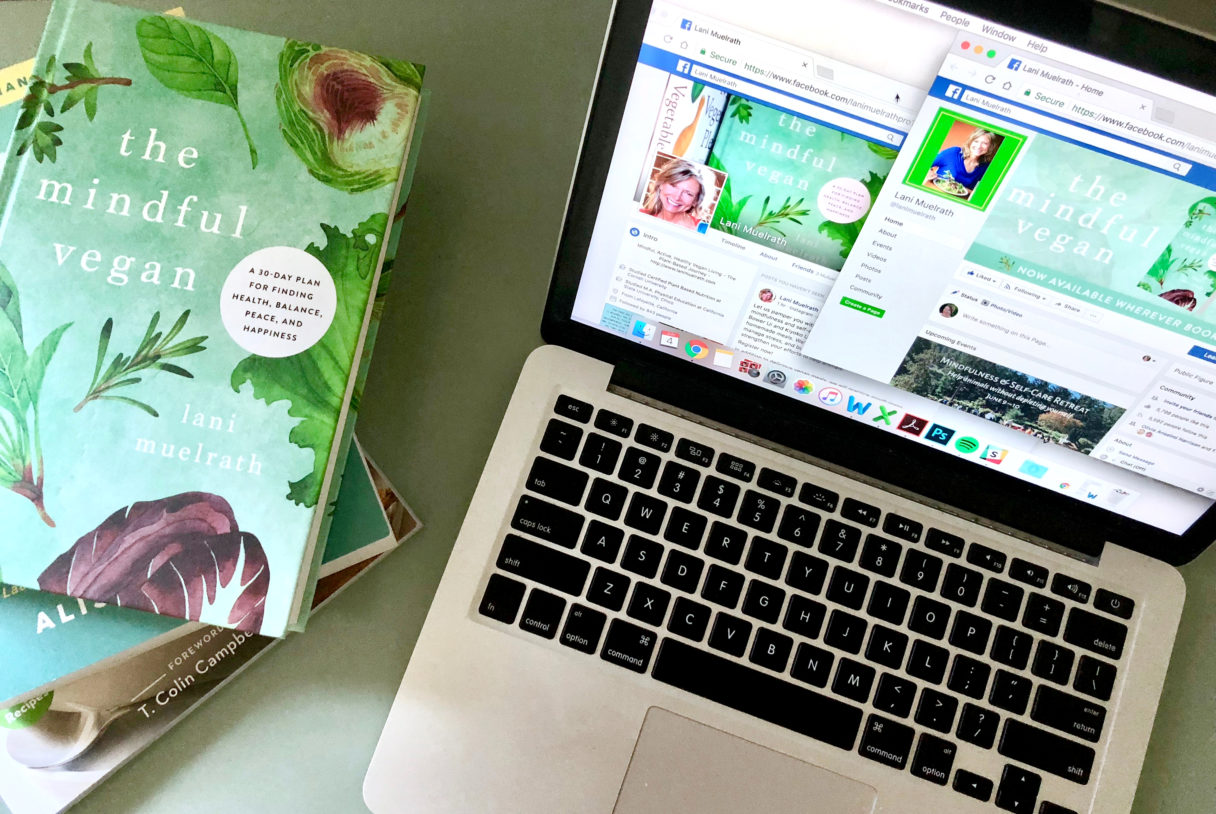![]() Marketing a book is a multifaceted process that encompasses everything from traditional media pitching and brand partnerships to Facebook ads and speaking engagements. In our new “Smart Marketing” series, the BenBella Marketing Department will share insights into hot topics in marketing and publicity and practical strategies authors can put into practice.
Marketing a book is a multifaceted process that encompasses everything from traditional media pitching and brand partnerships to Facebook ads and speaking engagements. In our new “Smart Marketing” series, the BenBella Marketing Department will share insights into hot topics in marketing and publicity and practical strategies authors can put into practice.
Today’s Smart Marketing post is from BenBella’s Senior Marketing Manager Heather Butterfield.

Most people who are online these days are Facebook users. You’ve probably guessed this anecdotally, but the numbers also back it up: 68% of internet users are on the platform, far more than what you’ll see on Instagram (32%), Pinterest (31%), LinkedIn (25%), and Twitter (24%). It’s an active network, to say the least, and if your readership is there, it’s a useful place to expand your author platform presence.
Oftentimes when we work with authors who are getting started building their online platform, they’re already familiar with the site in the form of their personal Facebook profile—but they don’t necessarily have a business page, or know whether they should. In answering that question, it’s helpful to get down to basics.
What’s the difference between a Facebook profile and page?
A Facebook profile is where you share vacation photos, updates on all the cute things your new puppy has been doing, invitations to your birthday party. Personal life details, in other words. It’s also where you connect with friends, family, colleagues, etc., via the friend request function. Profile privacy can be highly controlled so people only what you want them to see. Maybe you set your profile so only approved friends can see the entirety of what you’re posting, for example, or maybe your page is open for all to see. It’s up to you. In either case, for people to regularly see your posts in their newsfeed, they have to add you as a friend.
A Facebook page is for businesses on the platform, like retailers, artists, bands, and, you guessed it, authors (your writing is your business!). Anyone can connect with your page by searching for it and clicking “Like” under your cover photo—no friend request process required. Once they’ve liked it, they’ll see your updates in their newsfeed. It’s not at all unusual for strangers to like your page, in the way that it would be a bit odd for a total stranger to send a friend request to your private profile.
The bottom line?
If you’re an author who has decided that Facebook would be a valuable addition to your platform, you should create a business page where your readers and fans can find and follow you. The page is your public face where you can share updates about your new book, a blog tour you’re doing, a recent radio interview . . . all of your writing business, in other words. You can have a personal page too, and by all means invite friends there to like your business page as well.
(A quick aside here: If you do start a page, you don’t only have to share your business-related information. Maybe you like to update you readers on your day-to-day writing process. Maybe your cat likes to fall asleep on your keyboard and your readers can’t get enough photos of him snoozing. It’s all about your authentic point of view, and knowing what’s right for your audience.)
Perks of a Facebook page
Facebook has made a lot of powerful tools available on their business pages, including:
- Cost-effective and highly targeted advertising capabilities and page promotion
- Insights, where you can track user interaction and set Pages to Watch, so you can compare the performance of your page with other similar pages on Facebook
- A basic demographics breakdown of people who follow your page
These can help you get to know your audience and grow your platform in a mindful and data-driven way.
Want to set up a page of your own? It’s quick and easy to do! Facebook has a tutorial here. They also have a wealth of other marketing information for businesses, which you can browse here.







